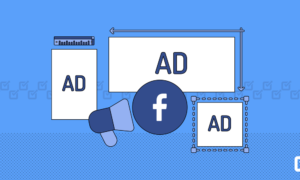Facebook Account Suspension Crisis
In recent years, Facebook account suspensions have become more common, attracting attention from advertisers and regular users. A growing number of accounts, particularly those managing multiple profiles, face frequent suspension issues, which is no accident but a result of Facebook strengthening its platform rules to combat improper behavior and protect user privacy.
According to various media outlets and industry reports, Facebook’s account suspensions mainly target users with multiple accounts, suspicious activity, or those violating advertising policies. Some users report their accounts being banned for “violating community standards” or “suspicious activity,” though many claim they didn’t engage in any malicious behavior. This issue is especially prevalent among ad accounts, where businesses and advertising agencies suddenly find multiple accounts suspended simultaneously.

Since the 2018 Cambridge Analytica scandal, Facebook has steadily increased its user privacy protections and compliance requirements. According to Facebook’s official policies, any actions involving improper data usage, fake accounts, or user behavior manipulation are subject to strict scrutiny and potential suspension. Additionally, Facebook continues to evolve its ad policies, with more stringent demands for ad content compliance and authenticity. Actions like identity theft, linking multiple accounts, or managing several accounts from the same device can trigger the security system of Facebook, marking these accounts as high-risk and leading to suspension.

In response, Facebook has rolled out more automated detection mechanisms that analyze users’ device information, IP addresses, and browser fingerprints to identify possible violations. These policies aim to protect the platform’s integrity and combat malicious activities. However, this heightened surveillance and strict rules create significant uncertainty for regular users and small businesses, leading to many cases of “innocent suspensions.”
As a result, the suspension crisis while using Facebook is not isolated but part of the platform’s response to the increasingly complex social network environment and escalating security challenges. The frequent suspensions have sparked widespread concern and prompted users to rethink: How can you safely manage multiple Facebook accounts without being unfairly banned?
Facebook’s Stance on Multiple Account Management: Policy Restrictions and Risks
As Facebook continues tightening its platform rules and security measures, many users wonder: Does it allow users to register and manage multiple accounts? Facebook’s policies provide a relatively straightforward answer to this question.
According to Facebook’s community standards and usage policies, users are allowed only one personal account for transparency and authenticity, reducing fake accounts, false identities, and malicious activities. Facebook insists that users must represent real individuals, meaning one can only operate a single personal account. Violating this policy, particularly by using multiple accounts to post content, place ads, or manage business accounts, can trigger platform security alerts, leading to account suspensions or restrictions.
However, while personal accounts must be unique, Facebook permits users to create multiple business accounts for various activities or projects. This policy means that while you can have only one personal account, you can manage various business pages or ad accounts under that personal account, offering some flexibility for users managing multiple brands or ad campaigns.
Complexity arises when many users, managing multiple businesses or projects, create multiple personal accounts to spread risk or avoid linking different projects. While this might seem reasonable in the short term, Facebook’s detection system flags actions like multiple account links or using the same device or IP to manage multiple accounts as potentially violating the rules and risking suspension of all related accounts.
Facebook uses a system to detect account links, comparing browser fingerprints, IP addresses, and browser profiles to identify multi-account activities. While the platform allows for managing multiple ad accounts and pages, if these actions are detected as being carried out by the same user or device without clear separation, the accounts may still be flagged as suspicious, leading to suspension.
Therefore, users must be extra cautious when managing multiple accounts under Facebook’s strict policies and detection mechanisms. Understanding and adhering to Facebook’s account management policies is key to avoiding unnecessary suspension risks, whether for advertising needs or business management.
How to Safely Manage Multiple Accounts Under Facebook’s Policies
Despite Facebook’s cautious stance on multi-account operations, some legitimate and efficient methods exist for those who need to manage multiple businesses, ads, or projects to operate several accounts without violating Facebook’s policies and reducing the risk of suspension.
First, as mentioned earlier, Facebook allows users to create and manage multiple ad accounts and business pages under one personal account. This policy is compliant and manageable through tools like Facebook Business Manager. With Facebook Business Manager, you can manage multiple ad accounts, set budgets, track ad performance, and assign permissions, ensuring each project remains separate and minimizing the risk of account linking.

However, many users managing multiple businesses or ad accounts, especially those advertising in different countries or regions, often need different personal accounts. In this case, Facebook’s strict detection mechanisms may link these accounts, making it necessary to use technical tools to isolate operating environments and avoid suspension.
1. Use Proxy Servers and VPNs
Many users use proxy servers or VPNs to mask their IP addresses to prevent multiple accounts from being linked through the same IP address. By assigning a unique IP address to each account, you can reduce the risk of Facebook marking the accounts as linked. Different IP addresses help the platform identify these accounts as being operated by other users or environments, decreasing the likelihood of suspension.
However, it’s important to note that using a VPN or proxy isn’t a foolproof solution. Facebook’s detection system doesn’t rely solely on IP addresses but also uses browser fingerprints and other identifiers to track linked accounts. Therefore, it’s crucial to ensure that different identifiers are appropriately managed when using VPNs.

2. Use Antidetect Browsers
An antidetect browser is a specialized tool designed for multi-account management. It masks different browser fingerprints and device profiles, creating a separate, isolated environment for each account. This significantly reduces the risk of Facebook linking and suspending accounts.

What is an Antidetect Browser?
Each device leaves behind a unique “fingerprint” online. This fingerprint consists of various device details and environment variables, such as operating system, browser version, screen resolution, fonts, plugins, language settings, and more. Social platforms like Facebook use this information to identify devices and browser features. When multiple accounts display the same or similar browser fingerprints, the platform may suspect these accounts are linked, which can lead to suspension.
An antidetect browser simulates and masks these fingerprints, making each account appear operated from a different device and network environment. By customizing the browser fingerprint, Facebook cannot trace links between accounts, significantly lowering the risk of suspension.
Key Features of Antidetect Browsers
- Masking Browser Fingerprints:
Antidetect browsers can modify and mask details like operating system, browser info, screen resolution, fonts, and language. This makes each Facebook account appear to be running on a different device. Even if you manage multiple accounts on the same computer, Facebook won’t detect any connection between them. - Independent Browser Profiles:
Antidetect browsers create isolated virtual operating environments for each account. Each virtual browser instance has a separate cache, cookies, and browsing history, ensuring no information is shared between accounts. This is especially important for managing multiple ad accounts, as even small connections can trigger suspensions. - Using Proxies with Antidetect Browsers:
Antidetect browsers often use proxy servers, assigning different IP addresses to each account. This hides your real location and ensures that the network environment and browser fingerprints match, preventing Facebook from linking accounts through IP addresses. - Preventing Browser Fingerprint Leaks:
Regular browsers may accidentally leak browser fingerprint information, linking multiple accounts. Antidetect browsers control and customize each account’s fingerprint to prevent any information from leaking, ensuring privacy and security.
How to Safely Manage Hundreds of Facebook Accounts with DICloak Antidetect Browser
For businesses, agencies, and advertisers needing to manage large numbers of Facebook accounts, the DICloak antidetect browser offers a powerful and secure solution. Through real-world examples, it’s clear that the DICloak antidetect browser helps users avoid Facebook’s multi-account management restrictions and provides various features to manage hundreds of accounts efficiently, ensuring each account’s operations remain safe, independent, and fully isolated.
1. Bulk Creation and Import of Profiles
DICloak antidetect browser supports bulk creation of browser profiles, allowing users to create independent environments for multiple Facebook accounts simultaneously. Each environment has a unique browser fingerprint and device information, ensuring each account looks like it’s being operated from a different device. For existing profiles, DICloak also supports bulk import, saving time by avoiding manual setup for each account.
Whether you are setting up multiple account environments for the first time or need to transfer operations between devices, DICloak’s bulk functionality significantly boosts operational efficiency.

2. Customizable Fingerprints and Proxy Settings
DICloak allows users to customize the fingerprint details for each profile, including operating system, browser plugins, screen resolution, and language settings. This way, each Facebook account has unique device information, helping prevent account linking. In addition, DICloak supports the bulk import of proxy information, allowing each account to have its unique IP address. Combining customized fingerprints with proxies, DICloak ensures that each account’s operating environment is secure and isolated.
This highly flexible configuration is beneficial for users managing large numbers of accounts, helping them maintain both security and efficiency in multi-account management.
3. Environment Isolation: Safety with Peace of Mind
With DICloak, users can easily create fully isolated operating environments, ensuring no shared data or device information between Facebook accounts. This environment isolation helps prevent Facebook from linking and banning multiple accounts due to account association, making advertisers and agencies feel more secure when managing multiple accounts.
4. Efficient Management of Browser Profiles: Batch Operations
DICloak antidetect browser offers several convenient management features, such as batch opening, closing, deleting, and transferring profiles. This means that when users need to manage hundreds of Facebook accounts simultaneously, they can execute multiple account management tasks with just one click. This increases operational efficiency and ensures that each account’s environment is uniformly managed.
Additionally, DICloak supports team collaboration, allowing multiple users to operate in the same environment simultaneously, enabling seamless teamwork.

5. Cloud Sync: Consistency Across Multiple Devices
DICloak’s cloud synchronization feature greatly benefits users working across multiple devices. After logging in on one device, users can sync all profile data across the cloud, keeping everything consistent without needing repeated logins or configurations. This is particularly useful for those who need to switch operations between devices, eliminating the hassle of reconfiguring settings and ensuring uniformity and security of data.
Whether working from the office computer or a home device, DICloak maintains data consistency, allowing smooth transitions between devices.

6. Multi-Profile Operations: Team Collaboration on the Same Account
In many real-world applications, team members may need to operate the same Facebook ad account simultaneously. DICloak’s multi-profile operation feature allows multiple users to open the same profile at once, enabling collaborative account management. For example, a marketing team can simultaneously manage multiple ad accounts without worrying about environment conflicts or account linking issues.This multi-profile feature helps businesses and ad agencies improve team collaboration efficiency and ensure the effective management of each ad project.
7. RPA Automation – Automatically Create and Maintain Facebook Accounts
DICloak antidetect browser provides security and flexibility for multi-account management and supports RPA (Robotic Process Automation) features. This allows businesses to manage large numbers of Facebook accounts efficiently. With RPA automation, users can automate the creation, maintenance, and operation of multiple Facebook accounts, further enhancing efficiency.

Businesses and agencies can set up automation scripts to automatically create Facebook accounts in a secure browser environment using DICloak. Combined with independent fingerprints and proxy settings, the account creation process mimics manual operations, making each account appear as though it’s from a different user and device. Additionally, RPA automation can be used for daily maintenance tasks, such as logging in regularly, updating profiles, posting content, and even automating ad placements.
By leveraging this automated management approach, DICloak reduces manual effort and operational risks, ensuring large-scale Facebook account management is more efficient and controllable. This feature is particularly suitable for advertisers, agencies, and social media management teams needing to maintain hundreds of accounts, helping them efficiently complete complex tasks while bypassing Facebook’s multi-account restrictions.
Conclusion
DICloak Antidetect browser offers a highly secure and efficient solution for users needing to manage large numbers of Facebook accounts. Whether through bulk profile creation, customizable fingerprints and proxy settings, or environment isolation and multi-device cloud sync, DICloak helps users tackle the challenges of multi-account management, ensuring that each account operates independently and securely.
For businesses, agencies, and advertisers managing hundreds of Facebook accounts, DICloak is an indispensable tool for staying compliant with Facebook’s policies while ensuring smooth and efficient operations.
































